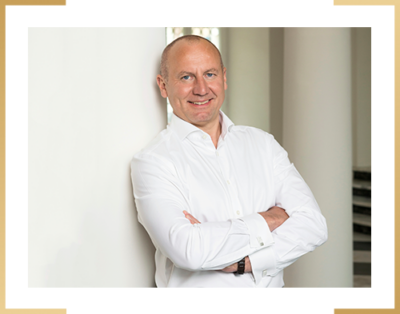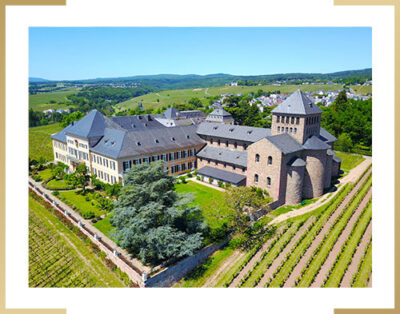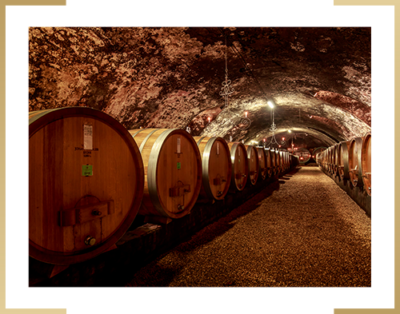Profits & Passions — Stefan Doktor’s journey from luger to hotelier to vintner

The wine world has no shortage of charismatic characters that arrive in the vineyard and the winery through birth, formal education or a viral interest-turned-passion. Stefan Doktor grew up in the mountains of Slovakia and enjoyed them in winter. He started sledding, then began to train on the luge until he became a world- class luger on the Slovakian national team. His college education was in hotel administration and on graduating he traveled to Germany, where he pursued work in hotels and on cruise ships. There the wine world introduced itself, and Doktor dove in, receiving separate wine diplomas from an Austrian and a British academy.
Doktor became a sommelier on a cruise ship, giving him the opportunity to taste a vast quantity of high quality wines to refine his already cultivated palate. It would lead him to a world of Rieslings that you can also find in our own Westchester and Fairfield counties.
In 2008, he became sales manager of Schloss Johannisberg and estate manager in 2016. The schloss, or palace, has an interesting, full-circle history, beginning as ninth-century vineyards before becoming a Benedictine monastery, an independent abbey, a 1716 palace and, a couple of years later, the first winery to produce Riesling grapes and wines exclusively. With Doktor’s careful, systematic approach, coupled with his creative inclinations, charm and charisma, it appears to be a brilliant fit.

I recently attended a luncheon at The Grill in midtown Manhattan to meet Doktor, hear about the estate and sample three styles of wine of three vintages each, decades apart, through a vertical tasting. All of the wines are single vineyard wines, grown, harvested, pressed, fermented, aged and bottled as from a plot — no blending there. The estate is on a steep hill above the Rhine River. (Johannisberg, or “John’s Hill,” refers to the moment in 1130 when the abbey dedicated its high altar to St. John the Baptist.) The forest at the top of the hill protects the grapes from northerly cold winds, and the river below warms the air and reflects the sun to make an optimal environment for premier grape production. Soils of marl, slate and quartzite add a brilliant minerality to the wine.
Our first grouping contained three Rotlack Kabinetts from the 2022, 2015 and 1979 vintages. Great Rieslings can age for decades and here was proof. The 2022 was pure, with fresh lime peel, white peaches and tart lemon — lovely. The 2015 showed a floral sweetness with pineapple and a puckery, crisp finish. The 1979 brought a sweet lemon essence and a fresh, steely finish. All of the wines we tasted had a great citrus backbone to hold them together and helped allow for young consumption or long aging.
Next we tried three Silberlack GG wines from 2022, 2020 and 2013. The GG designation stands for GroBes Gewächs (“Great Growths”). These are later harvest wines with 10% of the wine made like red wine, allowing for skin contact and maceration, which delivers more flavor and mouthfeel. All the grapes are hand-harvested and oak-aged from trees harvested from the estate. The 2022 showed crisp lemon zest with a clean, pure mouthfeel. The 2020 was steely and fruity. At 13% alcohol, it was quite dry and a perfect accompaniment to the minted sea bass we were served. The 2013 was aromatic with tangerine flowers, stony and steely with a long, unctuous, oily finish.

Our final wines were three Grünlack Spätlese from 2022, 2017 and 2007. The 2022 showed sweet green apple with ripe apricot. The 2017 also had a green apple presence with a gripping acidity electrifying the palate. The more mature 2007 had ripe peach, oranges and marmalade with a brilliant, unctuous finish. So many wonderful flavors to mull over and discuss. All of these three were single digit alcohol by volume (ABV), measuring between 8% and 8.5%. This is a reliable indicator there will be a considerable sweetness because not all of the natural sugars in the grapes have been fermented into alcohol. Any of these three would be perfect with a dried fruit platter and Stilton blue cheese.
Tasting German Rieslings is always a treat ,especially when there is some time on them. They don’t get enough attention in the United States. Give yourself a treat. Look for some Schloss Johannisberg Rieslings — you can find them at Westchester Wine Warehouse in White Plains, Zachys Wine & Liquor in Port Chester, the International Wine Shop in Westport andTotal Wine & More in Norwalk, to name a few locations — and open a bottle with a friend or two for a wine discussion. The wines are lively and fresh, no matter what decade they’re from. I will be looking for some tonight.
In his spare time, Doug — founder and president of South Salem-based Eager Beaver Tree Service for Westchester and Fairfield counties — is a Professional Ski Instructors of America (PSIA)-certified instructor and coaches alpine skiing at Killington, Vermont. He also reviews wines and spirits, writing for Sante magazine, a food and beverage magazine for industry professionals. He regularly takes photographs for his columns and Eager Beaver’s website.
Write him at doug@dougpaulding.com.